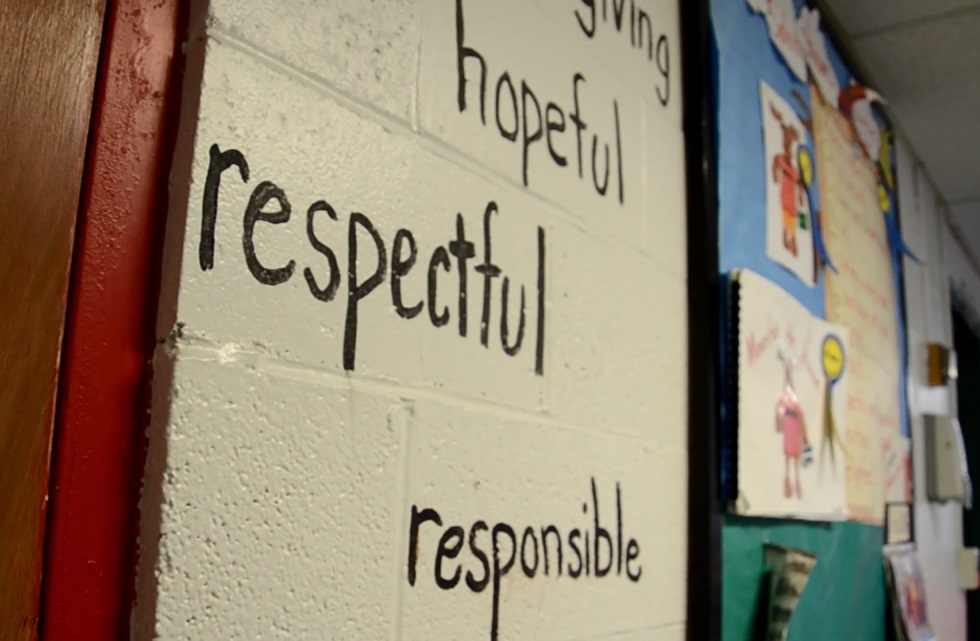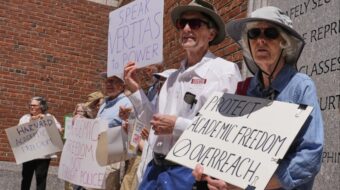
CONCORD, N.H.—U.S. District Judge Paul Barbadoro in New Hampshire has rejected the state’s attempt at censoring what public school teachers may teach about race in the Granite State’s classrooms, a decision that elates both big teachers’ unions, the National Education Association (NEA) and the American Federation of Teachers (AFT). The AFT called the measure “a divisive concept” law.
In his May 28 ruling, the judge called New Hampshire’s law “unconstitutionally vague,” not only in what it banned—the teaching of critical race theory and its spinoff concepts—but when it could ban it.
The Granite State lawmakers, the judge said, want to censor teachers’ speech even when they aren’t in the classroom, and that violates the U.S. Constitution’s freedom of speech clause. The New Hampshire law imposes unconstitutional “viewpoint-based restrictions on speech,” the judge added.
The judge’s decision is yet another win for teachers, their allies, and freedom of speech and freedom to teach over the divisive forces of the radical right and its white supremacist wing.
Similar to laws in deep red states
The New Hampshire law is similar to laws approved in deep-red states such as Texas and Florida and is “fatally vague in three ways,” the judge said. It doesn’t “provide fair notice of the concepts teachers may not teach.”
It also “doesn’t sufficiently explain when classroom discussion” of history—as part of a larger curriculum—veers into teaching banned ideas, such as the inherent superiority of one race over another or the inherent guilt of one race.
And New Hampshire lawmakers didn’t specify when a teacher’s speech outside her classroom isn’t subject to the law’s penalties, which range up to and including firing and loss of her state license,
“The judge saw this case for what it was: A politically based, divisiveness-fueled attempt to stoke fear—fear of honest history, fear of critical thinking, fear of knowledge,” said AFT President Randi Weingarten, a New York civics teacher with a law degree. AFT Local 8037, with 3400 members, was one of two unions that sued. New Hampshire’s National Education Association affiliate was the other.
This law “was about chilling educators and stopping them from meeting the needs of their students,” Weingarten continued. “The vagueness was a feature, not a bug, and was written to confuse and confound so educators would never know whether they would lose their license.
“That’s not supporting teaching and learning. It’s an attack on professionals who’ve dedicated their careers to helping kids thrive…The judge put a stop to this charade and recognized it as a grievous assault on knowledge, learning, history and critical thinking.”
Megan Tuttle, a social studies teacher who’s also the state NEA president, added: “New Hampshire’s ‘banned concepts’ law stifled New Hampshire teachers’ efforts to provide a true and honest education. Students, families, and educators should rejoice over this court ruling which restores the teaching of truth and the right to learn for all Granite State students.”
The judge’s ruling “means educators across New Hampshire can nurture an equitable and inclusive school environment where all students are seen and heard,” said New Hampshire school administrators Christina Kim Philibotte and Andres Mejia who helped take the case to the ACLU.
“It is critically important students see themselves in the books they read and in the classroom discussions they have to ensure they feel cared for and valued,” they said. But the threat isn’t over, the two warned.
“The legislature is still pushing dangerous bills that tell students of color, students from the LGBTQ+ community, and students with historically marginalized identities they do not belong in our schools and history. This decision pushes back on these legislative efforts.”
The law’s lead sponsor in 2021, former State Sen. Robert Guida, R-Grafton, called it “necessary to ensure the minds of our future generations of our state are not being unduly influenced by advocacy for such toxins as critical race theory.”
New Hampshire “forces teachers to guess as to which diversity efforts can be touted and which must be repudiated, gambling with their careers in the process,” Judge Barbadoro responded. And it’s so vague, the judge said, that bosses could use their own personal prejudices to decide which teachers broke it, and which didn’t.
We hope you appreciated this article. At People’s World, we believe news and information should be free and accessible to all, but we need your help. Our journalism is free of corporate influence and paywalls because we are totally reader-supported. Only you, our readers and supporters, make this possible. If you enjoy reading People’s World and the stories we bring you, please support our work by donating or becoming a monthly sustainer today. Thank you!










